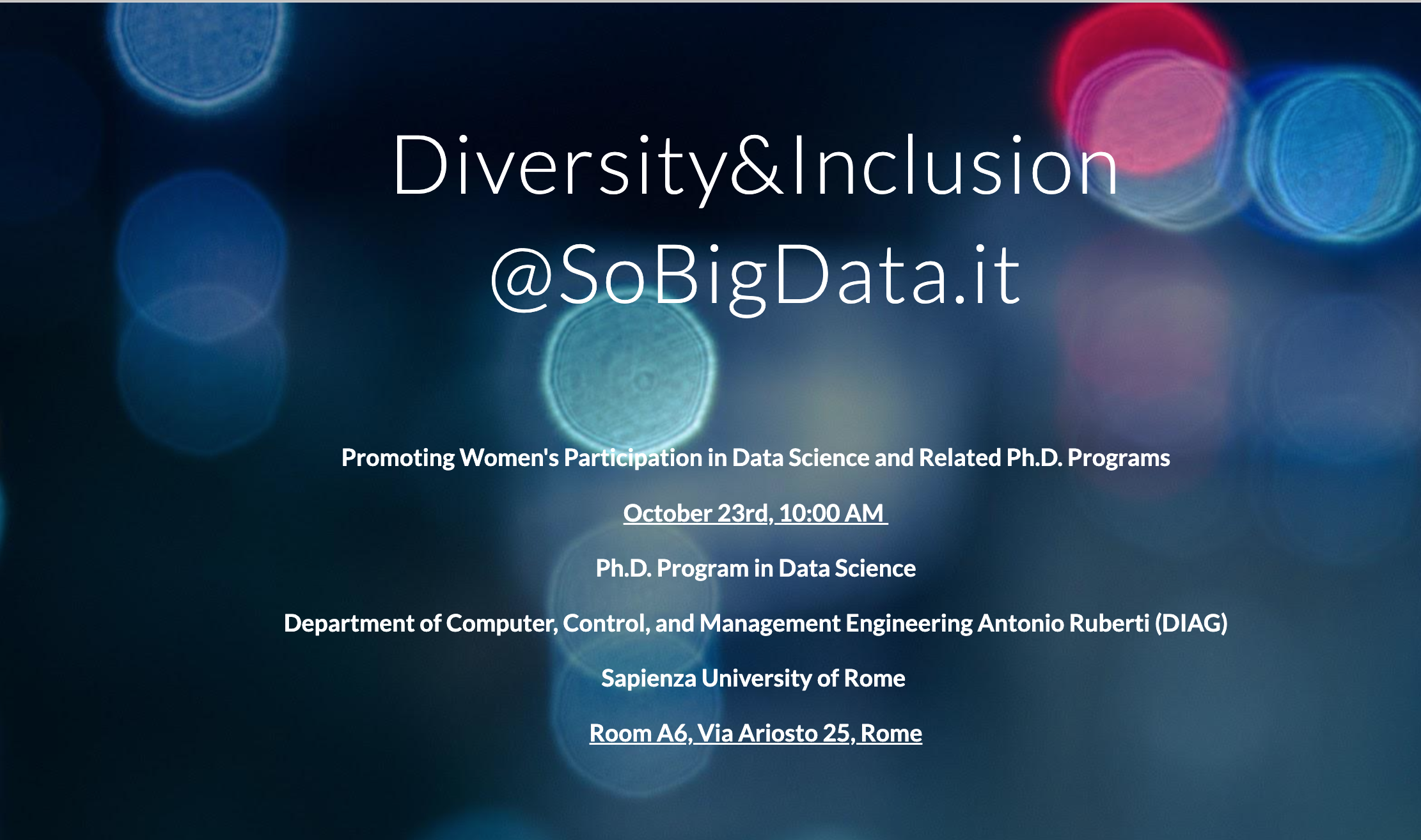PD4DS&ML-2023 | Promoting Diversity in Data Science and ML for Msc and PhD programs at Sapienza - 2023
PROGRAM
10.00 Welcome address: Prof. Tiziana Catarci (Directress of DIAG-Sapienza)
Prof. Fabrizio Silvestri (Chair of the Data Science Ph.D. Program)
10.10 On Generalization Bounds for Projective Clustering | Dr. Maria Sofia Bucarelli
Abstract: In this work, we explore clustering with points and subspaces as centers, considering how quickly solutions converge to optimal clustering. Notably, we achieve near-optimal convergence rates for both center-based objectives and subspace clustering, extending known bounds for k-means and k-median.
Joint work with Matilde Fjeldsø Larsen, Chris Schwiegelshohn, Mads Bech Toftrup
10.50 Sheaf Hypergraph Networks | Dr. Giulia Cassarà
Abstract: In this talk, she presents a collaborative research effort with Iulia Duta, Professor Fabrizio Silvestri, and Professor Pietro Liò on "Sheaf Hypergraph Networks." The paper introduces cellular sheaves to improve hypergraph representations, leading to a more expressive inductive bias than standard hypergraph diffusion. The authors developed two novel sheaf hypergraph Laplacians and used them to design two categories of models: Sheaf Hypergraph Neural Networks and Sheaf Hypergraph Convolutional Networks. These models significantly enhance performance on multiple benchmark datasets for hypergraph node classification.
Joint work with Iulia Duta, Fabrizio Silvestri, Pietro Liò
11.30 Generative Semantic Communication | Dr. Eleonora Grassucci
Abstract: Semantic communication is poised to play a pivotal role in shaping the landscape of future AI-driven communication systems. Its challenge of extracting semantic information from the original complex content and regenerating semantically consistent data at the receiver, possibly being robust to channel corruptions, can be addressed with deep generative models. We will disclose the semantic communication challenges from the machine learning perspective and unveil how deep generative models will significantly enhance semantic communication frameworks in dealing with real-world complex data, extracting and exploiting semantic information, and being robust to channel corruptions.
Joint work with Sergio Barbarossa, Danilo Comminiello

